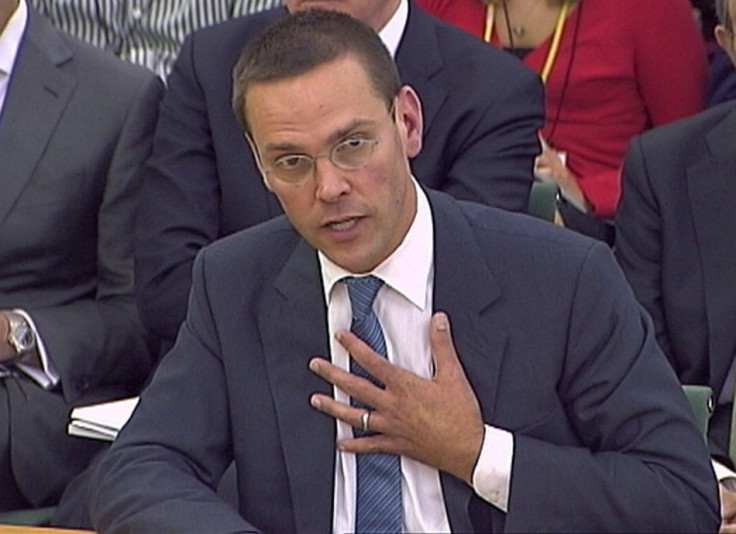Ex-staff Accuse James Murdoch of Misleading UK Parliament on Phone Hacking

James Murdoch, son of media mogul Rupert Murdoch and News Corps' boss in Europe and Asia, has been accused of misleading British Parliament during a high-profile testimony conducted earlier this week.
In a remarkable reversal of the standing of Murdoch junior in the wake of the phone hacking scandal that led to the closing of the News of the World tabloid and the arrest of senior executives, two former employees switched camps to call the bluff on him.
In the light of the latest revelation which will muddy the phone tapping scandal that has already rocked British politics, the parliament select committee chairman said he would ask James to explain the discrepancies in his testimony.
During the testimony James Murdoch had denied he had early information about the extent of the phone hacking activities engaged in by journalists at the News of the World. He was asked if had knowledge of the 'Neville' email which had suggested that the hacking scandal had legs and was widespread. Murdoch denied he had any information, saying, No, I was not aware of that at the time.
However, two key officials of the media empire emerged to say Murdoch was wrong. Former News of the World editor Colin Myler and former News International legal manager Tom Crone said they had informed Murdoch about the existence of the email, according to Daily Mail.
The new revelations will create serious problems for Murdoch junior and could make his position as the heir apparent at News Crop. vulnerable. Earlier he had carried himself commendably during the parliament testimony and was credited for putting up a coherent argument to salvage the reputation of the media empire. However, this will change if he gets ensnared into the scandal deeper.
Reacting to the potentially damming turn of events, James Murdoch said: I stand behind my testimony to the select committee.
The document that could land Murdoch in fresh trouble is called the 'Neville email'. It was a message sent by a private investigator to Neville Thurlbeck, News of the World's former chief reporter, who was later implicated in malpractices at the paper, according to the Daily Mail. It had contained transcripts of messages hacked by the investigator Glenn Mulcaire.
The document became crucial in the case lodged by PFA chief executive Gordon Taylor who sued the News of the World for allegedly hacking into his mobile phone.
During testimony on Tuesday, Labor MP Tom Watson asked Murdoch if he was aware of the content of the email, to which he answered in the negative.
If Murdoch is proved wrong, he could face contempt of the parliament allegations.
As the scandal raged and claimed high-profile victims, it also took another vicious turn when a former News of the World reporter, who had substantial knowledge about the scandalous phone tapping, was found dead in mysterious circumstances.
Sean Hoare had claimed in a New York Times article that News of the World's former editor Andy Coulson had knowledge of the phone hacking while he was at the helm of affairs at the paper.
Ever since the scandal became public it claimed the heads of high-profile executives and government officials, and has cast a shadow over Prime Minister David Cameron on account of his hiring of Coulson as his media chief.
High profile victims of the scandal included Metropolitan Police Commissioner Sir Paul Stephenson, assistant commissioner John Yates and Rebekah Brooks, a former editor of the tabloid and the CEO of News International, Rupert Murdoch's media arm in the UK. Brooks was arrested last week while Murdoch and son James are due to testify before the British parliament today.
The death of Hoare, whose whereabouts had become a matter of speculation after the scandal hit high note, will complicate the case. He was found dead at his home in Watford, Hertfordshire. According to the police, the death unexplained, but not thought to be suspicious.
Hoare had made damning revelations about the phone hacking culture at the newspaper last year. He had said hacking was endemic in the tabloid and that the editors knew about this practise. He had given much-discussed interviews to BBC and the New York Times.
Earlier, Sir Paul Stephenson, the Metropolitan police chief, resigned after his position came under the shadow following revelation that he had accepted a 12,000-ppound luxury spa stay free of charge at the behest of former News of the World Deputy Editor Neil Wallis, who was arrested last Thursday in relation to the phone hacking scandal. His deputy too resigned later on.
© Copyright IBTimes 2025. All rights reserved.





















